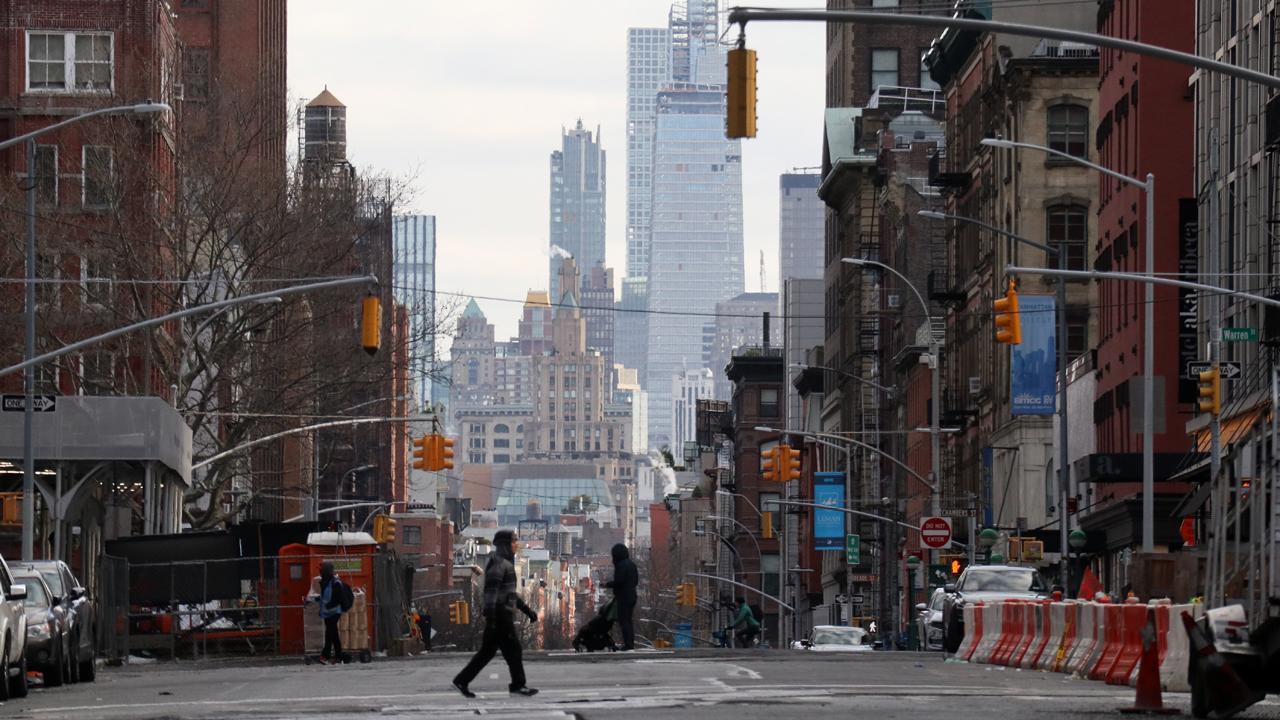New York hedge-fund traders aim to avoid city tax by WFH
The city is already forecasting a $359 million decline in collections of the unincorporated business tax compared with the $2.14 billion in last year's budget
Many employees at New York City hedge funds and other investment firms are now scattered around the region, working from home. Some view that as an opportunity to avoid a New York City tax, tax specialists say.
The city's 4% unincorporated business tax raises about $2 billion a year for the city by taxing investment-fund managers, law firms and other individually owned businesses, based on the portion of sales or services performed within the city.
As employees sheltered at homes in the Hamptons or in the suburbs, a group of hedge funds and other investment-management firms have begun using apps to track where their New York-based employees are working day to day. Their goal is to show that a large portion of the fees paid to investment managers were for services performed outside the city and therefore not subject to the city tax.
The city is already forecasting a $359 million decline in collections of the unincorporated business tax compared with the $2.14 billion in last year's budget, without taking into account actions of companies looking to shift accounting of sales outside the city.
NEW YORK MAY BE CHALLENGED OVER QUARANTINED WORKERS' TAX REVENUES
"We are concerned about the potential impact of the shift of employees out of the city and will adjust upcoming forecasts if it becomes a trend that affects city revenue," said Laura Feyer, a spokeswoman for the mayor. "Meanwhile, we will continue to make responsible budget choices and advocate for federal government support."

Bicyclists and a pedestrian pass through a quiet Manhattan street, Thursday, March 26, 2020, during the coronavirus pandemic in New York. The New York City immortalized in song and scene has been swapped out for the last few months with the virus ver
In the past four weeks, a dozen investment-management companies, with a total of $1.2 trillion in assets under management, have signed up to electronically document employee locations based on cell-tower, global-positioning and wireless data, said Nishant Mittal, co-founder of Monaeo, an app used by companies and individuals to document residency for tax purposes. Monaeo was acquired in March by Topia, a company that helps companies manage global business travel and employee mobility.
He said about half were hedge-fund managers and the others were managers of other investment vehicles.
WILL CORONAVIRUS CRISIS SPARK FRESH EXODUS FROM HIGH-TAX STATES?
Driving the push, he said, was the expectation by the firms that many employees will continue to work from home even after offices are allowed to reopen in the next few weeks.
"We believe that in the new world people will be comfortable working from home," even after New York City fully reopens, he said. "Even if that is only one to two days a week, that is going to make the tax savings worthwhile from an asset manager perspective.
Here is how it works for a hedge fund with $50 billion in assets. Typically, fund managers are paid 2% of assets each year plus 20% of investment gain. The 2% fee works out to an unincorporated business tax of $40 million on a gain of $1 billion at the city's 4% rate.
If all employees could show they worked outside the city during just the past three months that would result in a $10 million savings for the investment managers -- and a $10 million loss to the city.
CORONAVIRUS HIT HIGH-TAX STATES RENEW SALT CAP REPEAL EFFORTS
"UBT uses the standard of where the services are performed," said Timothy Noonan, a law partner at Hodgson Russ LLP who specializes in litigation on New York City and New York state residency rules. "If the services are performed by all the analysts in their vacation property in the Hamptons or New Jersey, those services would not be allocated to New York City."
Many wealthy individuals are also looking for ways to take advantage of the pandemic by limiting the days they spend in New York and turning their vacation homes into their main residence. But under complex rules in place, the city and state routinely challenges and audits many such shifts.
A taxpayer who continues to work for a New York company but moves out of state has to show the change was made for the convenience of the employer, said Robert Willens, a tax and accounting consultant who publishes a tax newsletter.
The state hasn't indicated whether it views people working at home because of the virus as working there for the convenience of the employer.
FAMED ECONOMIST WRITES $100B CORONAVIRUS PLAN TO TEST ALL AMERICANS
But the rules of the UBT are simpler and clearer. Beginning in 2009, the city began switching from a complicated formula based on three factors -- payroll, property and receipts -- to a simpler test based on sales alone.
A city study based on 2014 tax receipts found that finance and real estate accounted for 42% of tax liability under the tax, but only 19.5% of taxpayers. Legal services accounted for 28%, followed by professional services with 17%.
Mr. Mittal said that law firms, accounting firms and other partnerships could take advantage of the same provision as well.
"It applies to everybody," he said. "The finance people are the first ones to figure it out. They are very savvy when taxes on a billion dollars in gross receipts is at stake."
Write to Josh Barbanel at josh.barbanel@wsj.com
GET FOX BUSINESS ON THE GO BY CLICKING HERE




















